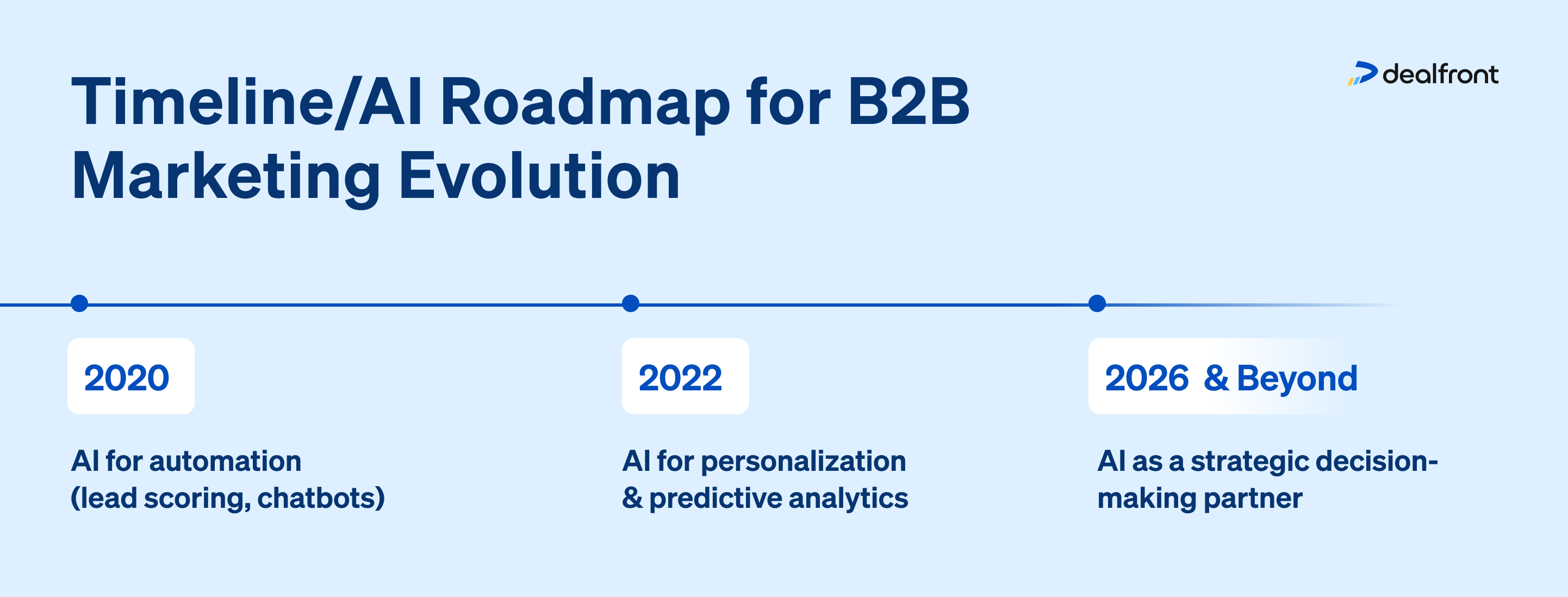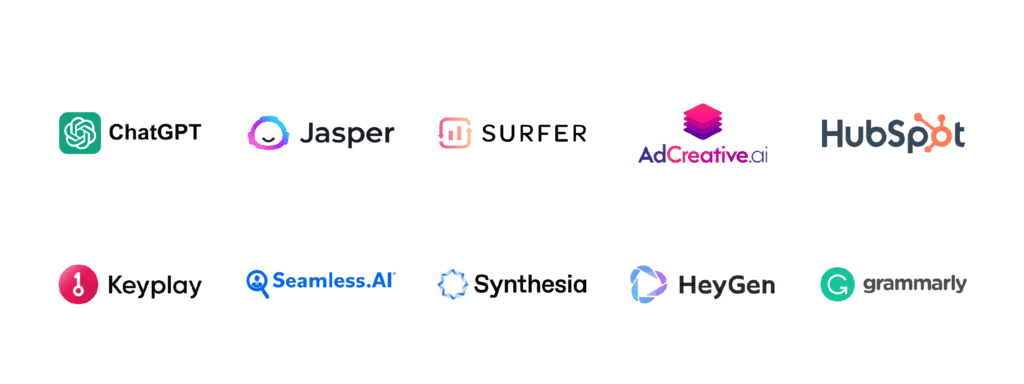Transform Your Organization: How AI Automation Is Changing B2B Operations
AI automation is reshaping B2B procedures in considerable ways. Firms are embracing this innovation to enhance process and improve performance. As tasks end up being automated, businesses can concentrate on strategic growth as opposed to ordinary procedures. The implications of these changes are profound, influencing whatever from consumer interactions to supply chain management. Recognizing this makeover is important, as the future of business hinges on the effective integration of AI into daily procedures. What exists in advance in this developing landscape?
Comprehending AI Automation in B2B Context
As services significantly look for efficiency, comprehending AI automation within the B2B context becomes crucial. AI automation refers to the application of synthetic intelligence technologies to streamline and enhance business procedures. In B2B environments, this can materialize in numerous types, such as automating data access, optimizing supply chain logistics, or boosting inventory monitoring. Organizations leveraging AI automation can lower functional expenses, decrease human error, and rise efficiency. AI tools can analyze vast amounts of data to offer workable understandings, making it possible for informed decision-making. The integration of AI right into B2B procedures not just transforms standard operations however likewise cultivates dexterity and scalability, enabling services to adjust to market modifications quickly and successfully. Embracing this technology is essential for staying affordable in today's digital landscape.
Enhancing Consumer Experience With AI
How can AI change customer communications in the B2B field? AI enhances client experience by providing personalized, prompt, and reliable solution. Intelligent chatbots and online aides can handle inquiries 24/7, ensuring clients obtain immediate actions. Anticipating analytics make it possible for services to anticipate client requirements, tailoring offerings appropriately. AI-driven systems can assess consumer data, allowing for targeted advertising and marketing methods and enhanced involvement. In addition, belief analysis devices assess customer responses, aiding organizations adjust their solutions. By automating regular tasks, AI releases up personnels to focus on high-value interactions, promoting more powerful partnerships. The integration of AI not just improves interaction but also builds trust and loyalty, inevitably boosting the general consumer experience in the affordable B2B landscape.
Improving Supply Chain Management With AI
AI plays a necessary function in optimizing supply chain monitoring through anticipating analytics and automated supply control (B2B Growth Consulting). By leveraging anticipating analytics, businesses can prepare for need variations and readjust their procedures appropriately. Automated supply systems additionally boost effectiveness by making sure supply levels are preserved, reducing waste and enhancing general efficiency

Predictive Analytics Benefits
While many organizations encounter difficulties in managing complex supply chains, anticipating analytics offers a transformative remedy by leveraging large quantities of data to forecast patterns and maximize procedures. By analyzing historical data together with real-time inputs, predictive analytics allows business to identify patterns and prepare for future demands. This insight enables for more informed decision-making, enhancing efficiency and minimizing prices. Additionally, services can proactively deal with potential disturbances by predicting supply chain traffic jams and changing techniques as necessary. The assimilation of predictive analytics not just improves supply administration but additionally promotes stronger relationships with providers and customers through timely reactions to market changes. Eventually, the adoption of predictive analytics equips organizations to remain affordable in a significantly dynamic service atmosphere.
Automated Inventory Control
As companies progressively rely upon predictive analytics to maximize supply chain procedures, automated inventory control emerges as an effective ally in this initiative. By leveraging AI-driven modern technologies, business can improve accuracy in stock tracking, decrease stockouts, and lessen excess supply. Automated systems analyze real-time data, allowing businesses to anticipate demand variations and readjust stock degrees accordingly. This not just simplifies order satisfaction yet also enhances capital administration by decreasing holding prices. Additionally, AI can recognize patterns in purchasing habits, allowing even more enlightened decision-making pertaining to vendor relationships and procurement approaches. Ultimately, automated supply control not only boosts operational effectiveness however also improves customer contentment by making sure product accessibility, solidifying its function as an essential component in contemporary supply chain management.
Data-Driven Decision Making Powered by AI
In today's affordable landscape, organizations increasingly count on data-driven decision-making to boost functional performance and calculated planning. Synthetic intelligence plays a crucial function in this transformation by assessing huge quantities of information quickly and properly. AI formulas identify patterns, patterns, and anomalies that human analysts might ignore, allowing businesses to make informed choices based upon real-time understandings - Growth Systems For B2B. This ability enables business to anticipate market changes, optimize source allotment, and customize their offerings to consumer demands. In addition, AI-driven analytics promote threat evaluation and management, guaranteeing that companies can browse uncertainties successfully. By leveraging these innovative tools, organizations not just boost their decision-making procedures yet likewise acquire a competitive advantage in their particular markets, cultivating growth and technology
Automating Recurring Jobs to Increase Performance
Improving recurring jobs with automation significantly enhances productivity within B2B operations. By implementing AI-driven solutions, companies can get rid of ordinary activities such as data access, invoice handling, and report generation. This change permits staff members to concentrate on higher-value jobs, fostering creativity and strategic thinking. Automating these lengthy procedures not just decreases human mistake yet also increases workflow efficiency. In addition, companies can achieve constant results and enhanced precision, which is essential in maintaining customer complete satisfaction. The combination of automation tools makes it possible for organizations to allocate resources better, making sure that groups can react quickly to market needs. Ultimately, embracing AI for repeated jobs is a calculated step that transforms functional abilities and drives overall service growth.
Integrating AI With Existing Organization Processes
When incorporating AI with existing company processes, many organizations deal with difficulties. These challenges frequently come from a lack of recognizing concerning exactly how AI can enhance current workflows. Successful combination calls for a complete analysis of existing procedures to recognize locations where AI can include worth. Organizations needs to also ensure that their teams are equipped with the required skills to take advantage of AI tools efficiently - Growth Systems For B2B. On top of that, smooth integration rests on the compatibility of AI technologies with tradition systems. Companies typically locate it helpful to adopt a phased strategy, piloting AI applications in certain departments before a broader rollout. This technique permits changes based upon initial comments, ensuring smoother shifts and making the most of the potential benefits of AI automation in enhancing efficiency and effectiveness
Future Fads in AI Automation for B2B Companies
As B2B firms want to the future, improved data analytics is set to play a pivotal duty in driving decision-making processes. Smart process automation will likewise become a crucial fad, enhancing and streamlining procedures effectiveness. These developments guarantee to reshape just how services operate, inevitably resulting in even more receptive and active organizations.
Boosted Information Analytics
While services progressively count on data-driven decisions, the role of AI in enhancing data analytics is becoming more vital in B2B operations. AI innovations assist in the collection and analysis of vast datasets, enabling firms to uncover important insights that drive tactical preparation. Anticipating analytics powered by AI enables organizations to anticipate market trends and customer habits with higher accuracy. In addition, artificial intelligence formulas improve data analysis, identifying patterns that human experts might ignore. This causes more educated decision-making and enhanced source appropriation. As B2B business proceed to accept AI-driven analytics, they can anticipate enhanced functional efficiency, enhanced consumer experiences, and an one-upmanship in the marketplace. The future of information analytics in B2B depends upon integrating innovative AI capacities.
Smart Refine Automation
Smart Refine Automation (IPA) is positioned to change B2B operations by effortlessly integrating AI modern technologies with typical organization processes. This cutting-edge method combines robotic process automation (RPA) with sophisticated AI capabilities, allowing organizations to enhance performance and precision. Business can automate recurring jobs, such as data entrance and billing handling, enabling employees to concentrate on calculated efforts. IPA also leverages artificial intelligence and all-natural language handling, improving decision-making with real-time information evaluation. As companies progressively embrace IPA, they can expect substantial price decreases and boosted customer experiences. Future patterns suggest an expanding reliance on IPA for scalability and adaptability, positioning organizations to thrive in an ever-evolving market. Accepting IPA will certainly be essential for preserving competition in the electronic age.
Often Asked Concerns
What Industries Advantage A Lot Of From AI Automation in B2B Procedures?

Just How Can Tiny Services Carry Out AI Automation Efficiently?
Small companies can execute AI automation effectively by identifying recurring tasks, selecting ideal devices, integrating solutions gradually, educating team, and constantly analyzing performance to maximize processes, optimizing and ensuring a smooth transition performance.
What Are the Costs Connected With AI Automation Application?
The prices linked with AI automation application usually consist of software purchase, infrastructure upgrades, training personnel, recurring upkeep, and potential assessment fees. These costs can vary substantially based on the scale and complexity of the automation Discover More solutions picked.
Just how Do I Determine ROI From AI Automation Initiatives?
To measure ROI from AI automation campaigns, one ought to evaluate cost financial savings, performance improvements, and profits development against execution prices. Tracking essential efficiency indications with time supplies important insights into performance and overall roi.
What Skills Are Needed to Manage AI Automation Projects?
Efficient management of AI automation jobs needs skills in job management, data analysis, programming, and comprehending AI technologies. Additionally, strong communication, problem-solving capacities, and flexibility are important for maneuvering the intricacies of such campaigns.
As businesses progressively look for performance, understanding AI automation within the B2B context comes to be essential. The combination of AI right into B2B procedures not only changes typical operations but additionally fosters dexterity and scalability, permitting organizations to adjust to market modifications promptly and properly. While services progressively depend on data-driven choices, the role of AI in boosting data analytics is coming to be more necessary in B2B operations - AI Automation For B2B. Intelligent Process Automation (IPA) is positioned to transform B2B operations by perfectly incorporating AI modern technologies with conventional company procedures. Reliable administration of AI automation jobs requires abilities in project management, information evaluation, programming, and recognizing AI innovations